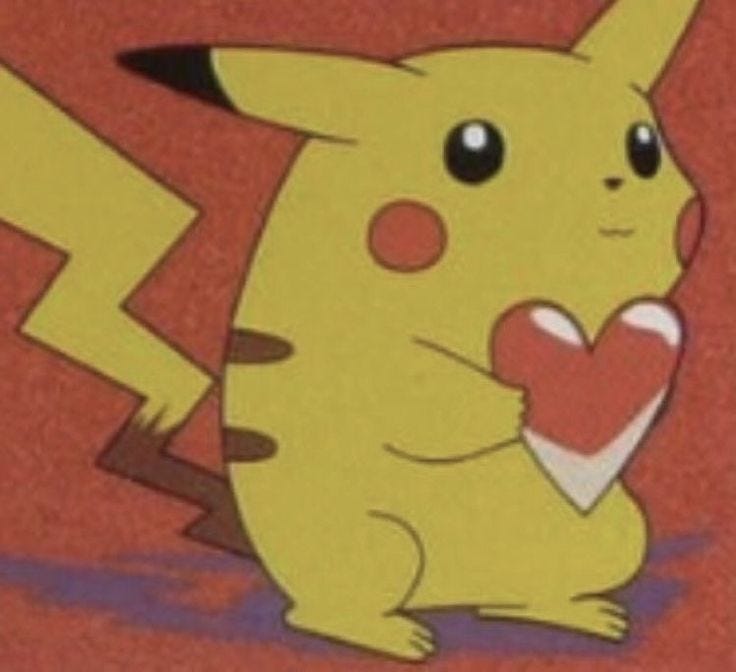mr salary by sally rooney
"My love for him felt so total and so annihilating that it was often impossible for me to see him clearly at all."
PRELUDE
Hi everyone! Today, I’m sharing some thoughts on “Mr Salary,” a short story written by Sally Rooney. If you want to follow along, you can read it here first.
If you haven’t heard already, my hope is to read all of Sally Rooney’s short stories and maybe 1-2 of her novels before seeing her in-person at the Louisiana Literature festival at the Louisiana Art Museum in Denmark!
If you like discussions about literature like this one you can check out my post on Sally Rooney’s other short stories “Concord 34” and “At The Clinic”. And also my post on Sally Rooney’s essay “Even if you beat me”. Additionally, you can check out my post on James Joyce’s short story “Araby” or Jhumpa Lahiri’s short story “Interpreter of Maladies.” For more on literature, I’ve written about Romance in Marseille by Claude McKay, Another Country by James Baldwin, and Just Kids by Patti Smith.
TABLE CHAT
“Mr Salary” by Sally Rooney follows Sukie, a young woman returning home to Dublin to visit her dying father. She stays with Nathan, an older family friend who has helped support her financially since she was a teenager. As the story unfolds over the course of this brief visit, it explores the tension, emotional ambiguity, and unspoken sexual desires that define Sukie and Nathan’s complicated relationship.
“Mr Salary” is a great short story to read if you want a compelling introduction to Sally Rooney’s exploration modern relationships and emotional intricacies. Complex and subtle, I think this is actually my favorite Sally Rooney short story so far. The short story format didn’t hinder its depth, but really enhanced the story, intensifying the tension between Sukie and Nathan. The more I read of her bibliography, the more aware I am of how much she can reveal with so little. This is also seen in the dialogue between the characters, the brevity of their conversations (or the snippets we see) mirror a restraint and emotional suppression. The tiniest details and quick exchanges pack the largest punch in Sally Rooney’s, quietly building out a deep emotional inner world.
“Nathan’s physical closeness had a sedative effect on me, and as we moved from shop to shop, time skimmed past us like an ice skater.”
For me, this story is about so many things. It’s about control and male authority figures, as much as it is examining the brink of love and death. Sally Rooney effortlessly weaves through the subtleties of desire and emotional dependence, and as usual doesn’t leave us with any easy answers or resolution. A recurring aspect in her short stories seem to be characters returning home – they have been removed and left from a place and end up coming back again, usually for troubled reasons or an event out of their control. A lot of her characters (like in “Concord 34” and Sukie in this story) don’t seem to really understand how to navigate a theoretical “new them” in the “same-old, familiar place.” This raises a lot of questions as to how the return has affected them, what is gained, and what is lost. Does a temporary distance change anything within them? Her characters exist in liminal and transitional spaces: much like Sukie and Nathan’s relationship, but also Frank who doesn’t seem to be lucid, in-between being truly alive and on the verge of imminent death.
Sukie is a difficult character for me to talk about. She reminds me a lot of being a young girl and navigating the intricacies and fine lines of the patriarchy, and trying to understand male relationships and roles, especially men who are older than you. Sukie is obviously in a much more severe position: having lost her mother and basically left in the care of her non-biological step-father who is emotionally abusive and manipulative. But on top of that, many of her conversations with the people in her life are centered around her abandonment. Usually it’s Frank reminding her of her mother’s abandonment, as well as their enigmatic conversation where Frank describes a mysterious “he” will be leaving Sukie for someone else (it’s never clear Nathan is who he is referring to… unless anyone has any other thoughts on this?) Sukie is constantly living with reminders of her abandonment and rejection in this story, or at least pulled back into it time and time again.
I think this story is about control and power in that sense, because of Nathan’s actions throughout the story. There are obviously many moments where their relationship is blurred: flirtatious remarks he or his friends will make, or make sexual advances only to never properly address it again and spin it into playful jokes. Their conversations are often elliptical, emotionally charged, and deliberately evasive. What’s left unsaid is as important as what’s spoken. His avoidance of direct confrontation speak to the lack of clarity in their relationship and complicate Sukie’s agency, as a young girl and also someone who’s under his care unofficially. On top of that, Nathan’s financial support of Sukie is central but barely discussed outright. This opens a discussion about how money becomes entangled with affection, control, and guilt in Sukie’s relationship with the male figures in her life. How much of Sukie’s indebtedness is financial, and how much is emotional? Rooney begins to blur the line between caretaker and romantic figure.
“In chronic leukaemia, the cells can mature partly but not completely, the website said. These cells may look fairly normal, but they are not.”
I loved the ending of this piece, which leaves us in this moment of tension again: a space of clarity and confusion. Sukie’s confessing in a twisted way that she wants to sleep with him, but it also ruptures this dynamic of “unspoken-ness” between them. Are the cells disintegrating or transforming? The idea Frank’s imminent death and Nathan’s role in her life kind of converge in this complex way, all in relation to her growth and “maturing” over the years.
That’s all for today!
Skylar xx
![[banchan]](https://substackcdn.com/image/fetch/$s_!bzBv!,w_80,h_80,c_fill,f_auto,q_auto:good,fl_progressive:steep,g_auto/https%3A%2F%2Fsubstack-post-media.s3.amazonaws.com%2Fpublic%2Fimages%2F4020a6b2-7d75-439c-8957-0777f2e5fe65_1200x1200.png)

![[banchan]](https://substackcdn.com/image/fetch/$s_!bzBv!,w_36,h_36,c_fill,f_auto,q_auto:good,fl_progressive:steep,g_auto/https%3A%2F%2Fsubstack-post-media.s3.amazonaws.com%2Fpublic%2Fimages%2F4020a6b2-7d75-439c-8957-0777f2e5fe65_1200x1200.png)










